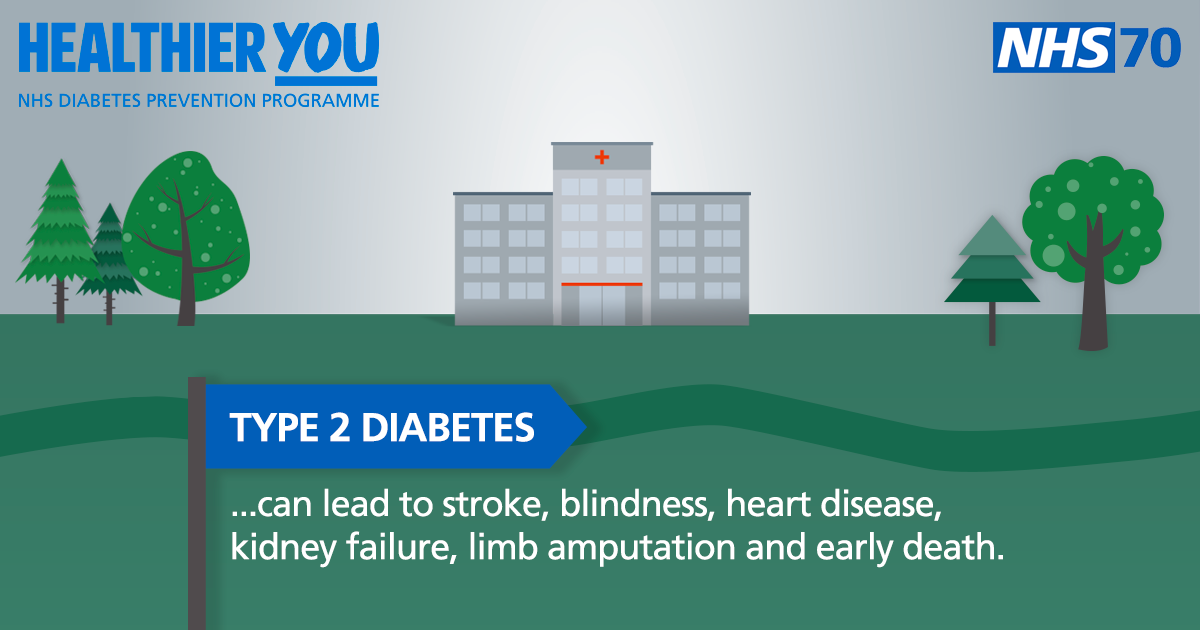Posts Tagged ‘type 2’
Complete online test to determine Type 2 diabetes risk
People in Scarborough and Ryedale and across the wider Yorkshire and Humber region are being encouraged to know their risk of developing Type 2 diabetes – by taking an online test, which takes just three minutes to complete.
Some 12.3 million people in the UK are at risk of developing Type 2 diabetes. If left untreated, diabetes can cause blindness, kidney failure, limb amputation, heart disease, stroke and even early death.
Identifying the risk of developing Type 2 diabetes as early as possible is crucial so people can make lifestyle changes sooner to lower their risk of developing the condition. Around three in five Type 2 diabetes cases can be prevented if people maintain a healthy weight, eat well and increase the amount of physical activity they do.
People living in Humber, Coast and Vale – a region including Hull and East Yorkshire, North Lincolnshire and North East Lincolnshire, Vale of York and Scarborough and Ryedale – are encouraged to visit www.diabetes.org.uk/risk to find out whether they are at risk of developing Type 2 diabetes.
Those people who are considered to be at risk of developing Type 2 diabetes should contact their GP surgery to find out whether they are eligible for the Healthier You: NHS Diabetes Prevention Programme – a free, personalised programme to encourage individuals to make small and achievable changes in order to live a healthier lifestyle.
Participants will receive support to reduce their risk of developing Type 2 diabetes in a number of ways. A dedicated health coach will support them to make positive changes to their diet and encourage them to be more physically active. As they progress on the programme, they will build on their dietary knowledge and their progress will be reviewed after six months and again at nine months.
Since its launch in July 2018, some 2,000 people across the Humber, Coast and Vale area have been referred to the Healthier You: NHS Diabetes Prevention Programme. Nationally, patients who have participated in the programme have lost an average of 3.6kg.
People aged 40 and over are also encouraged to get a free NHS Health Check to assess their risk of Type 2 diabetes, cardiovascular disease and other conditions.
While Type 2 diabetes is largely linked to lifestyle, some people are more likely to develop the condition if they have an immediate relative who has diabetes, or if they come from black and minority ethnic (BME) groups. In addition, the risk of developing Type 2 diabetes increases as a person gets older.
Diabetes Prevention Week, which takes place between 1 and 7 April, aims to raise awareness about Type 2 diabetes and increase knowledge about how to prevent the condition.
Alex Seale, Senior Responsible Officer for Diabetes at the Humber, Coast and Vale Health and Care Partnership, and Chief Operating Officer at North Lincolnshire Clinical Commissioning Group, said: “Tackling Type 2 diabetes is hugely important for the Humber, Coast and Vale Health and Care Partnership as we want everyone in our area to have the opportunities and support they need to stay healthy and age well.
“I would encourage people living in the Humber, Coast and Vale area to visit www.diabetes.org.uk/risk to find out their risk of developing Type 2 diabetes – it takes only a couple of minutes to complete the online test. People in at-risk groups are particularly encouraged to complete the test.
“If the test indicates a person is at risk of developing Type 2 diabetes they could be eligible for the Healthier You: NHS Diabetes Prevention Programme. So far, more than 250,000 people nationally who were on the cusp of developing Type 2 diabetes have been referred to classes which offer advice and support on food, diet and exercise.”
For more information about the Healthier You: NHS Diabetes Prevention Programme visit www.england.nhs.uk/ndpp.
Read MoreNHS Scarborough and Ryedale CCG supports Diabetes Prevention Week
Published on Apr 20, 2018

Scarborough and Ryedale residents are being encouraged to eat healthy foods and be more active to reduce their risk of Type 2 diabetes, with a major programme of work to support people with diabetes now under way.
It is thought nearly 12,000 residents in Scarborough and Ryedale are currently at risk of developing Type 2 diabetes, which can lead to other serious conditions including stroke, heart disease, limb amputation, blindness and early death.
Treatment of diabetes costs the NHS more than £8 billion every year – that’s 10 per cent of the entire budget – and one in six patients in hospital has diabetes.
Around nine in 10 people with diabetes have Type 2 diabetes which is closely linked to obesity and yet is largely preventable by eating healthily, being more active and losing weight.
GPs and other healthcare professionals in Scarborough and Ryedale are using Diabetes Prevention Week (16-22 April) to encourage residents to improve their future health.
NHS Scarborough and Ryedale Clinical Commissioning Group (CCG) Clinical Lead for Diabetes, Dr Chris Ives, said: “Since 1996 the number of people with diabetes in the UK has more than doubled from 1.4 million to 3.3 million and it is estimated that 5 million people are now at risk of developing Type 2 diabetes.
“It’s a ticking timebomb for the NHS, yet Type 2 diabetes is largely preventable through lifestyle choices.”
Meanwhile, a programme of work to provide extra support to patients with diabetes is now and up and running.
NHS Scarborough and Ryedale CCG in partnership with Vale of York CCG collaborated with York Teaching Hospital NHS Foundation Trust to secure around £430,000 through NHS England’s Diabetes Transformation Fund.
One element of the programme is to review specific cohorts of patients with diabetes and offer targeted support to those people who have higher than recommended HbA1c levels, blood pressure and/or cholesterol that could lead to additional complications.
The additional support may also include a specialist GP review, psychology and social worker intervention, as well as medicines management help.
You can check to see if you are at risk of type 2 diabetes at www.diabetes.org.uk/risk
Read More
